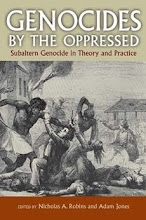Wednesday, May 05, 2010
Russia / Circassian Genocide / Chechnya
The Defiant People of the Caucasus (Interview with Oliver Bullough)
By The Global Dispatches
TheGlobalDispatches.com, no date (current)
Photo: Oliver Bullough
"[...] Towards the end of the book ['Let Our Fame be Great -- Journeys among the Defiant People of the Caucasus") you cast a cloud over the Sochi Olympic GamesI don't mean to, but I do think there is a problem that needs to be addressed and it is not going to go away by itself. There is no doubt, Sochi will be a heavenly place to hold the Olympics but there is no getting around the fact that the Games will be held on the 150th anniversary of the Circassian genocide when that whole region belonged to someone else. There has been absolutely no acknowledgement of that at all. This would be a very good opportunity for the Russians to stand up and put their hand on their heart and come clean and then move on. It would be an acknowledgement of the wrongs committed in the past and a positive step forward. To date anyone mentioning these historical facts is accused of being in the pay of the CIA, which is a little puerile! Imagine if the Olympics were held in eastern Turkey without any acknowledgement that this used to be Armenian land. The world would see that as wrong, and the Russians would certainly have something to say about it.
What is the current state of Chechnya?
It is actually quite turbulent compared to how it was three or four years ago. There is still an iron fist at work, helped along by large sums of money. The situation has worsened because the new government has been very brutal in imposing its will. There used to be a balance of Chechen clans who ran Chechnya on Russia's behalf, but many of their leaders have been killed and now there is a much narrower power base. This fact and the accompanying brutality has alienated people, and a good analogy for the way Chechnya is being governed by Russia is the way that Britain governed Kenya in the 50s, via a very small cabal of tribal leaders who were effectively paid to fight the war on Britain's behalf. It became obvious with Kenya that this was no way of running a country. It is not a long term policy. I think there are people within the government in Moscow who recognise this. Some measure of stability has been reached which satisfies some short term interests but a long term strategy is still needed. [...]"
Subscribe to:
Post Comments (Atom)















No comments:
Post a Comment
Please be constructive in your comments. - AJ